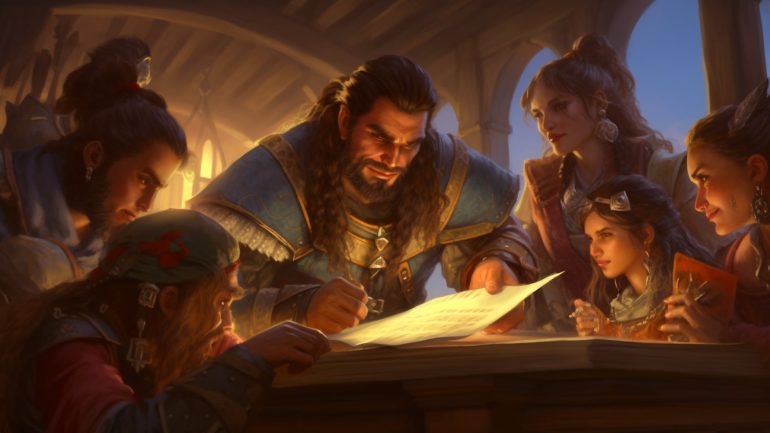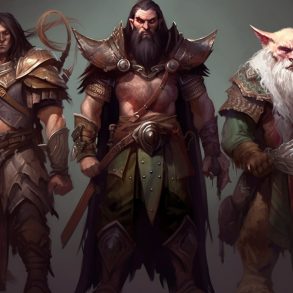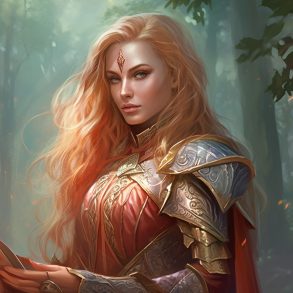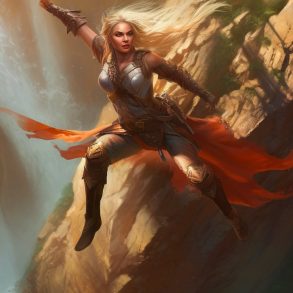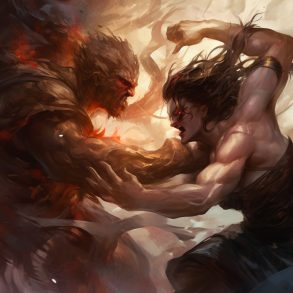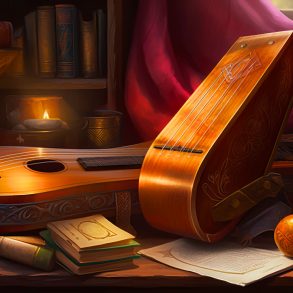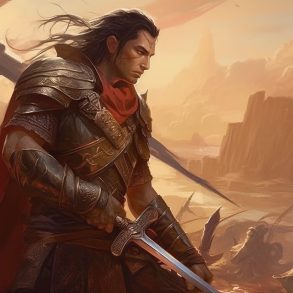A surprising amount of people don’t know what DnD is or why people like it so much. If you’re one of those people who don’t know much about DnD or want to start playing and want to enjoy your game, have a seat in our tavern, have a sip of our dragon’s breath drought, and our seers shall help you see the truth behind this magnificent game!
Of course, before we can get you started, you do need a game and a group which we have a guide on how to start a campaign (the tips for finding players should work for finding a DM too), and how to write a campaign (if you want to DM, or you know someone that wants to DM) to get you started with the group and a game.
Players and DMs have similar needs, and so we’ll tackle the tips that can help you get into it, whether you’re one or the other.
How to get into and play Dungeons and Dragons
Learn the basics
Before you can start playing Dungeons and Dragons (DnD), you need to learn the basic rules and mechanics of the game. You can do this by reading the Player’s Handbook, which is the core rulebook for the game. The Player’s Handbook provides information on how to create a character, how to resolve conflicts, and how to use different types of dice.
Find a group
The next step is to find a group to play with. You can do this by searching for D&D groups on social media platforms, such as Facebook or Reddit. You can also look for local gaming stores or cafes that host D&D events. If you have friends who play D&D, you can ask them if they would be interested in starting a game with you.
Create a character
Once you have a group to play with, you need to create a character. You can do this by following the character creation rules outlined in the Player’s Handbook. The process involves choosing a race, class, and background for your character, as well as selecting attributes, such as strength, dexterity, and charisma.
Prepare and play the game
Before you start playing, you need to prepare for the game. This involves making sure you have all the necessary equipment, such as dice, character sheets, and pencils. You also need to familiarize yourself with the adventure that the dungeon master (DM) has planned.
During the game, the DM will describe the setting and situations, while the players will describe what their characters do in response. The game is played by rolling dice to determine the outcome of actions, such as attacking a monster or trying to pick a lock. The goal is to work together as a team to complete the adventure and overcome any obstacles that arise.
Starting, we have: playing the game and paying attention. Yeah, crazy, I know. If you turn off your games and your videos (you can use digital material to help you out), you’ll know what’s going on when everyone starts freaking out over something. But if you sit and watch the others at the table (Especially the DM), you’ll be able to do some incredible things, and none of the other tricks will work very well if you don’t follow this one. Your DM spends a lot of time working on the game, so on behalf of DMs out there: please don’t join games if you aren’t going to play them!
Experiment, experiment, experiment
Next up, try to do something you really want to do, even if you don’t feel it’s quite possible, such as: Try to yeet the annoying NPC! If it’s in character, or anything similarly hilarious, your DM may have you roll, and you could have a hilarious scene from: aggressively hugging someone, to helping someone take an involuntary bath! Or anything in between! And it’s very gratifying to have your crazy ideas come to fruition when the DM says: Sure, go ahead and roll.
In line with trying ridiculous things, we have: trying new things. Whether you try a new class, a new race, or even a new rule/creation you/your DM has proposed. It’s simple, but exploration is always exciting if you embrace it and are rewarded well for it.
Sometimes, you may feel a bit shy to speak. It’s alright. Not everybody is ready to talk in front of friends, knowing you’re just speaking as a fictional character. That’s acting. But it’s more than just talking. It’s also motions, position, expression, and body language, so I have a tip: When speaking as your character, try to talk with your body and voice. This helps you feel more comfortable in your character, and the other players feel more comfortable and make the entire game more enjoyable for everyone.
And now that we have acting in place, we finally have: Look for action. You will be tempted to grind and grind until you have the items you’re looking for. Also, DM TIP: When your players have something that they’d need to grind for to progress, provide varying quests that would reward the players with what they need to “grind” for, make them fun and different. But if you feel you aren’t having much fun, try to look for a bit of action in the world or a change of pace. Also, don’t be afraid to accelerate the plot because people aren’t as engaged.
Evaluate your group
For my last tip: make sure you have a good group. This is so vital to having a good game. If your DM isn’t allowing you to try new things (a high DC or your rolls being bad do not count), or the other players are hogging the spotlight (don’t forget to let them have some time in it), or any/all of the players are toxic, that can kill the mood. Also, leave arguments and disagreements at the door. If you have a bad group, you won’t be having fun because they’ll drag the game on over the most minor issue and won’t move on. Nothing different will be going on.
You may be given the short end of the stick for all equipment, healers not doing their job, tanks being in the back lines, spellcasters running into the fray and never paying attention or simply never knowing which spell to cast, skirmishers trying to do something else, and the one greedy player trying to take all the loot for themselves. However you slice it, a bad group can ruin your experience. If you have one of these experiences, try posting on r/RPGHorrorStories. If you want more examples of how a game can turn sour, that’s also a reason to visit that subreddit.
Diving deeper
If you’re going to get even deeper into DnD, try to bring your interests into the game, even if it’s primarily little nods. If you’re good at art, try drawing some character art or having a character that likes to paint, and if you’re good at geology, try to say something about a random rock you/your party finds. But bring your interests in without going overboard (e.g., refusing to stop talking, even if out of character, people are telling you to stop).
Once you find yourself into DnD, it’s hard to get yourself out of it. And you’ll want to bring others into it. However, as much as I’d love to DM for many groups, I don’t have enough Simulacrums, though I might want to program an Auto DM that can run a game, with player votes on possibilities that aren’t accounted for (e.g., trying to run up a wall), combined with a dungeon generator… Maybe I’ll write an entire Virtual Tabletop someday with these features, and that’ll work for me. But I hope that after reading this, you have an idea of what DnD is, and why it’s so fun to play.
What do you need to play Dungeons and Dragons?

The bare minimum you’ll need to play Dungeons and Dragons:
- The Player’s Handbook: This is the core rulebook for players of the game and contains all the information you need to create a character, resolve conflicts, and use different types of dice.
- The Dungeon Master’s Guide: This book for DMs contains information on how to run a game, create adventures, design encounters, and craft stories. It also includes advice on how to manage a group of players, handle rules disputes, and create unique worlds.
- The Monster Manual: This book for DMs contains a wide variety of monsters that the players may encounter during their adventures. Each monster has its own unique abilities, statistics, and traits, which the DM uses to create challenging encounters for the players.
- Dice: You will need several types of dice to play the game, including a four-sided die (d4), a six-sided die (d6), an eight-sided die (d8), a ten-sided die (d10), a twelve-sided die (d12), and a twenty-sided die (d20). Players use dice to determine the outcome of various actions, such as attacks, skill checks, and saving throws.
- Character sheets: These are sheets of paper that you use to keep track of your character’s attributes, skills, equipment, and abilities. The sheet is also used to track the character’s hit points, experience points, and other important statistics.
- Pencils and erasers: You will need pencils and erasers to record your character’s information on the character sheet and make changes as needed.
- A group of players: You will need a group of players to play the game with. The group usually consists of a dungeon master (DM) who runs the game and several players who create and control their own characters.
With these items, you will be able to create characters, go on adventures, and explore the vast and exciting worlds of Dungeons and Dragons.
DnD 5E books

Rulebooks
Rulebooks are essential for playing DnD 5E. The rulebooks contain all the rules for the game, including character creation, combat, and spellcasting. The core rulebook for DnD 5E is the Player’s Handbook, which contains everything a player needs to know to create and play a character. In addition to the Player’s Handbook, the Monster Manual and Dungeon Master’s Guide are helpful in fully understanding the game and not overly relying on the DM for knowing how to play DnD 5E.
The Dungeon Master’s Guide provides guidance and advice for DMs on how to create and run a campaign. It contains information on creating and designing a world, developing non-player characters, and designing encounters and adventures. It also provides rules for magic items, spells, and other game elements that are specific to the DM’s role.
The Monster Manual contains information on the various monsters and creatures that players may encounter during their adventures. It provides details on their abilities, strengths, and weaknesses, allowing DMs to create challenging and engaging encounters for their players.
Adventure Modules
Adventure modules are pre-written campaigns that DMs can use to run a game. These modules contain all the information needed to run a campaign, including maps, NPCs, and encounters. Adventure modules can save a DM a lot of time and effort, as they don’t have to create everything from scratch.
DnD 5E tools

DnD 5E is known for its complex rule system. One of the most important aspects of DnD 5E is the use of various tools to enhance the gameplay experience. These tools are designed to make the gameplay more streamlined and immersive, allowing players to focus on the story and roleplaying elements of the game.
These tools help players and DMs keep track of various aspects of the game, making it easier to focus on the story and roleplaying elements of the game. Whether it’s miniatures, tokens, or online tools, each of these tools can greatly enhance the DnD 5E gameplay experience.
Miniatures and tokens
Miniatures and tokens are used to represent characters and monsters on the battle map. Miniatures are three-dimensional figures that represent characters and monsters, while tokens are two-dimensional images printed on cardboard or plastic. These tools help players and DMs visualize combat and keep track of the positions of characters and monsters.
Online tools
There are many online tools available for DnD 5E, including virtual tabletops, character generators, and encounter builders. These tools can make it easier to play the game remotely, as players and DMs can connect online and use these tools to simulate the game.
